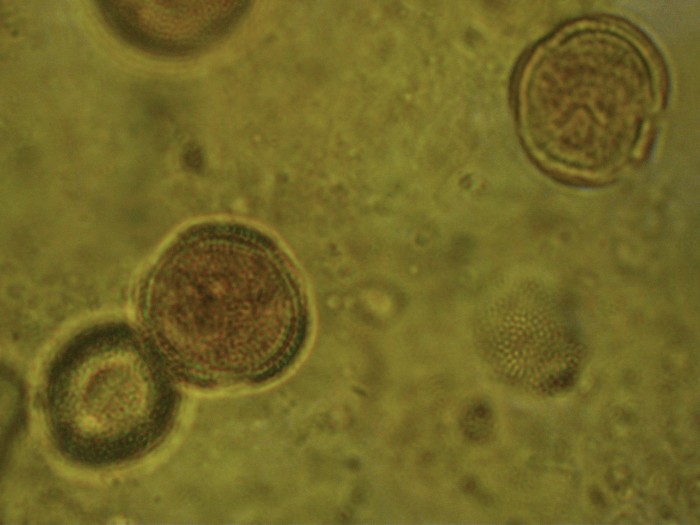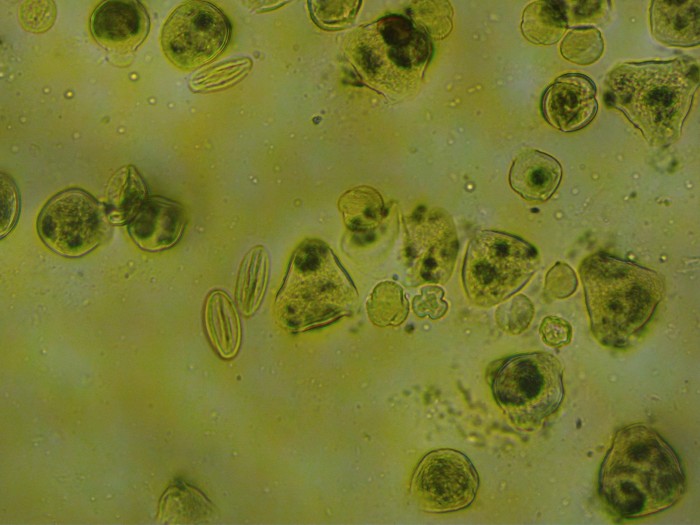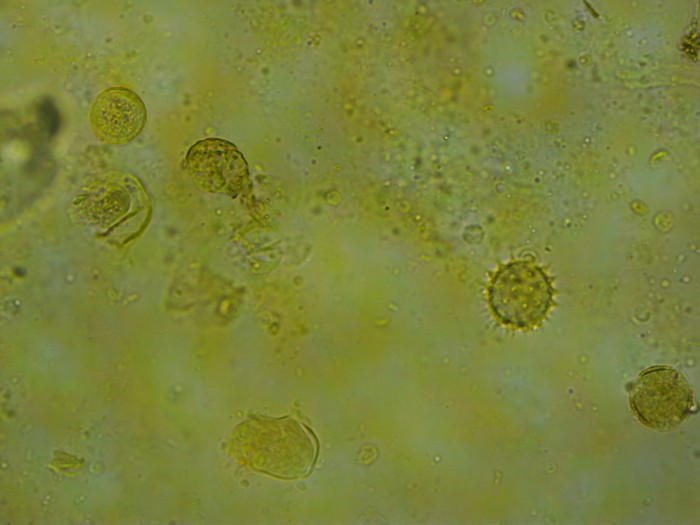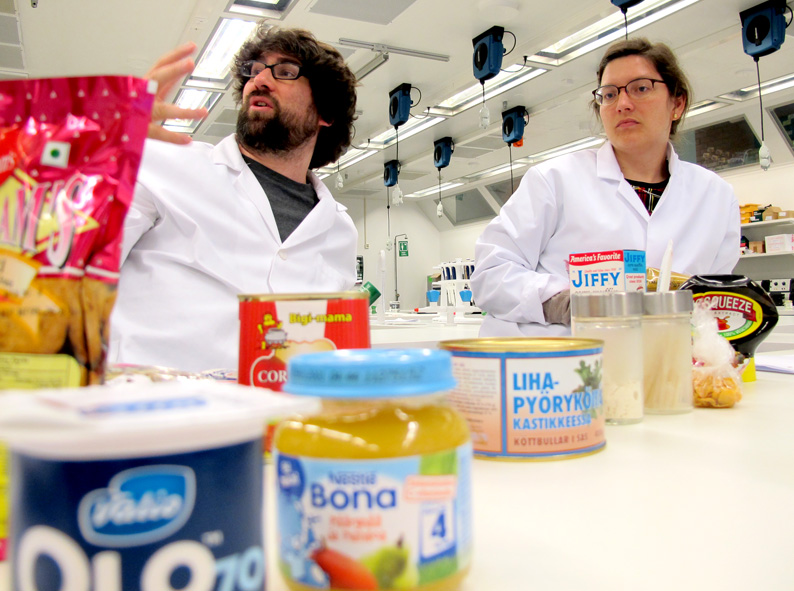
As part of Aalto University’s Dinner’s Ready programming, the Center for Genomic Gastronomy was invited to host a 2-day lab at Aalto Biofilia. We ran three Culinary Forensics labs:
• Honey Analysis
• DNA Fingerprinting
• Who Wants to be a Parts Per Millionaire (Gluten Testing).
IMAGES FROM THE LAB:
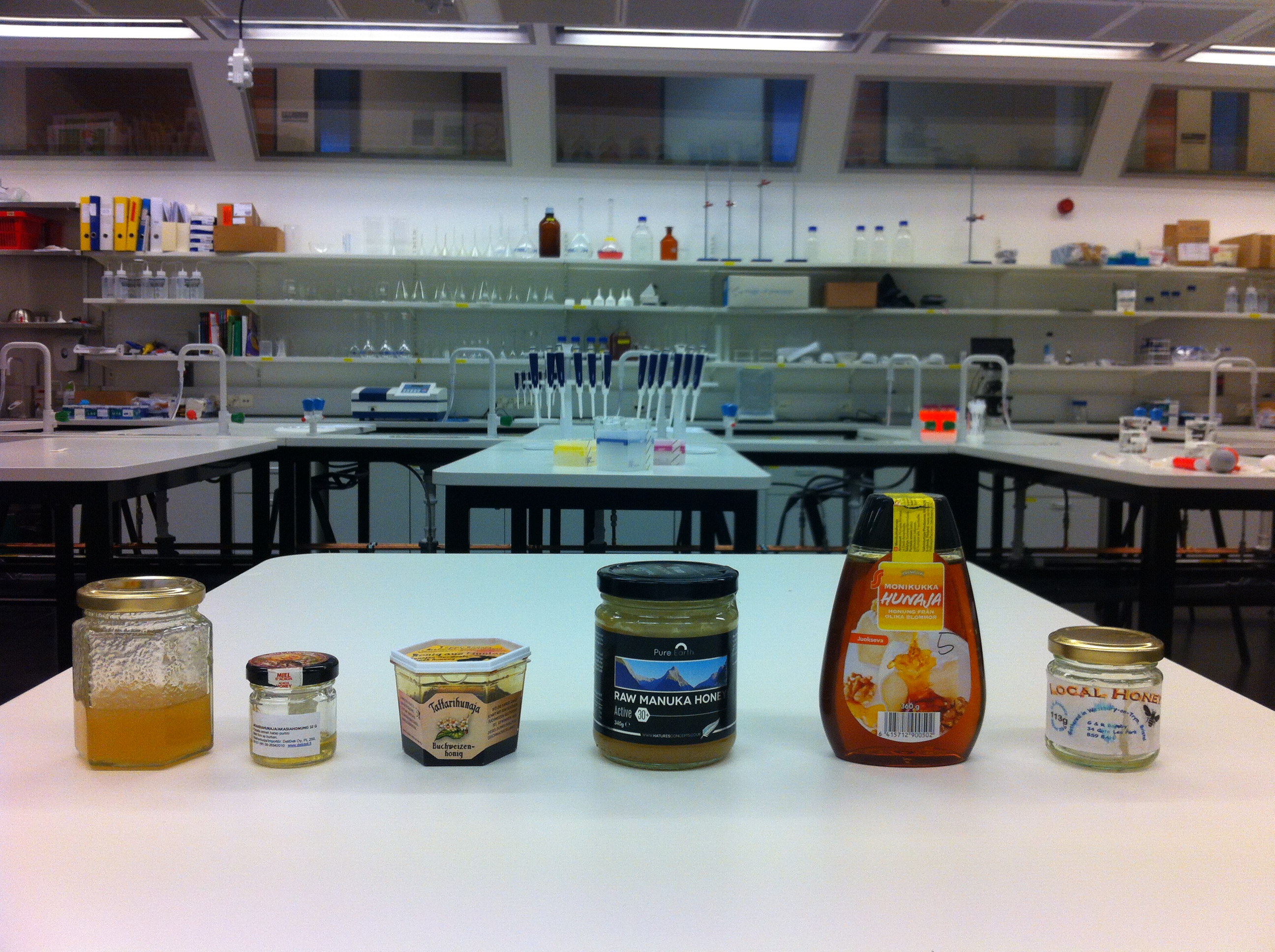
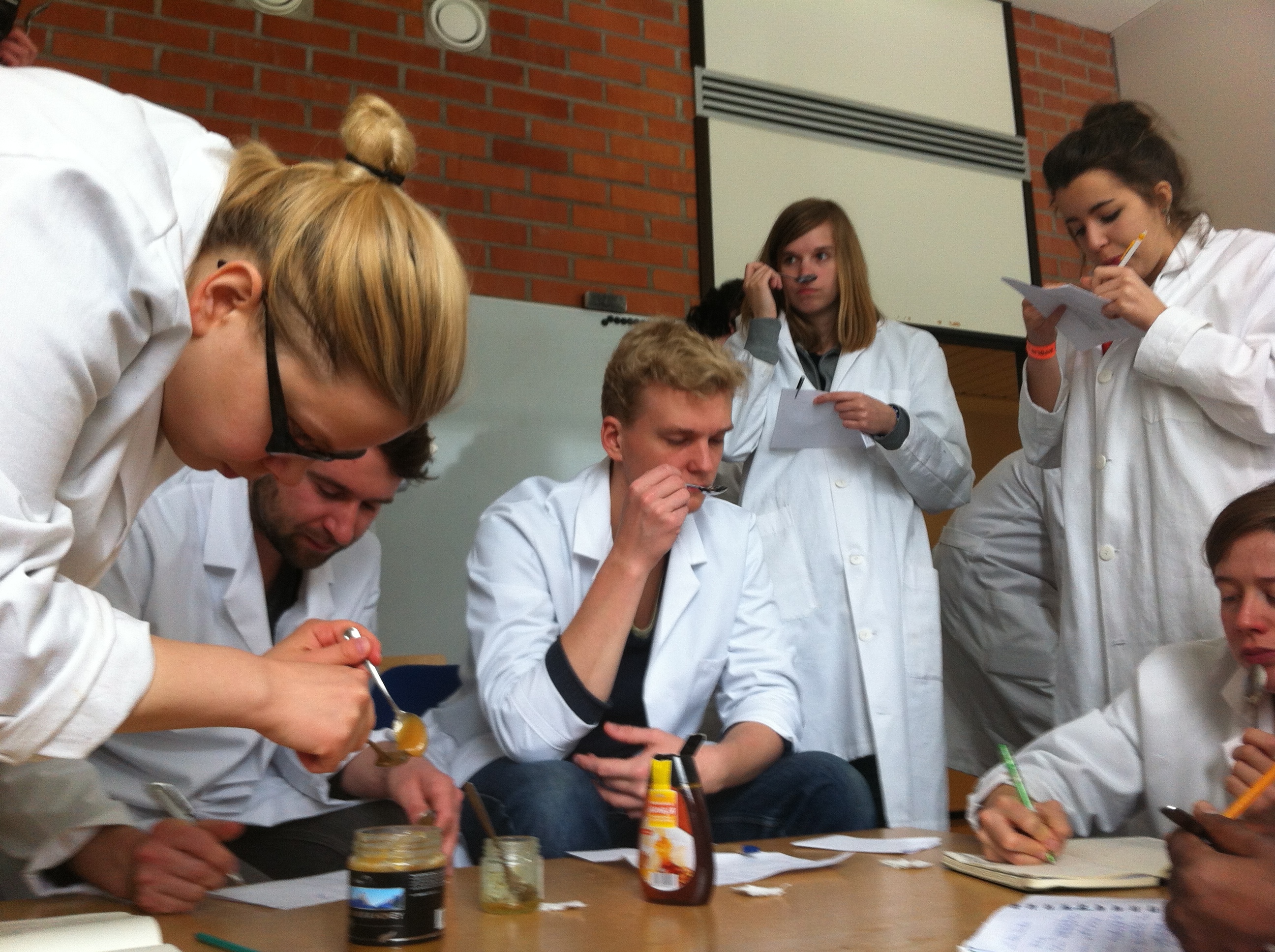
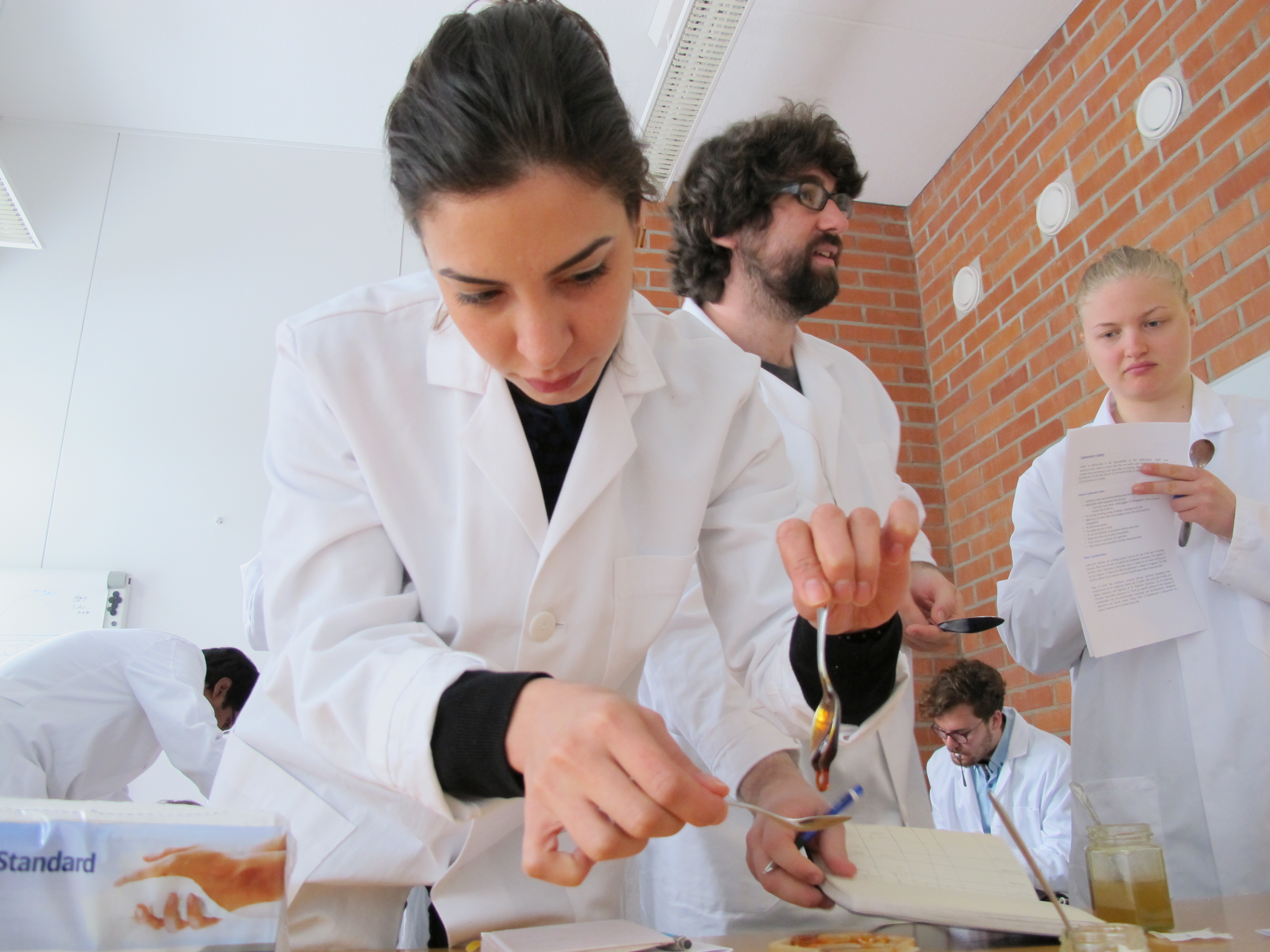
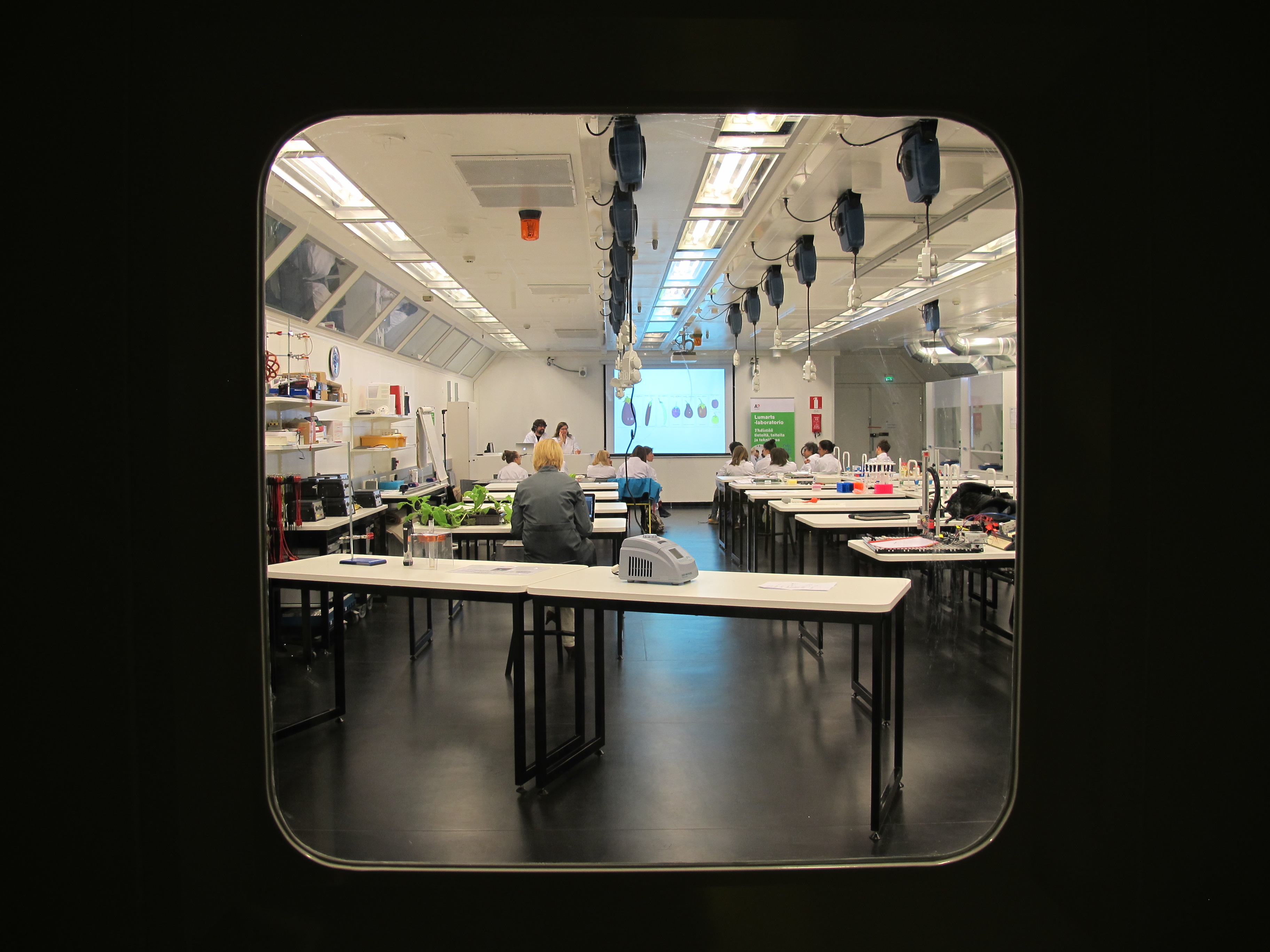
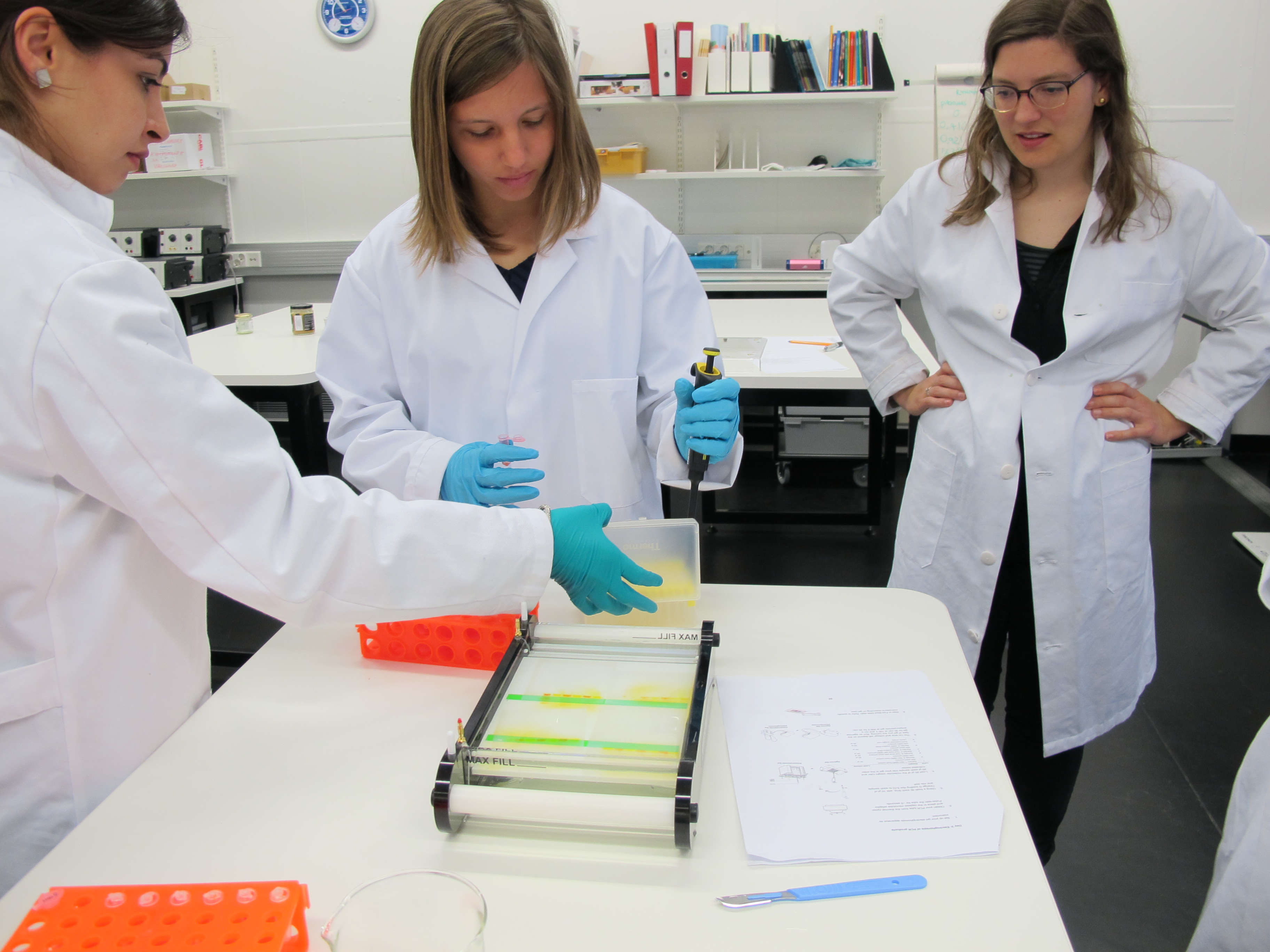
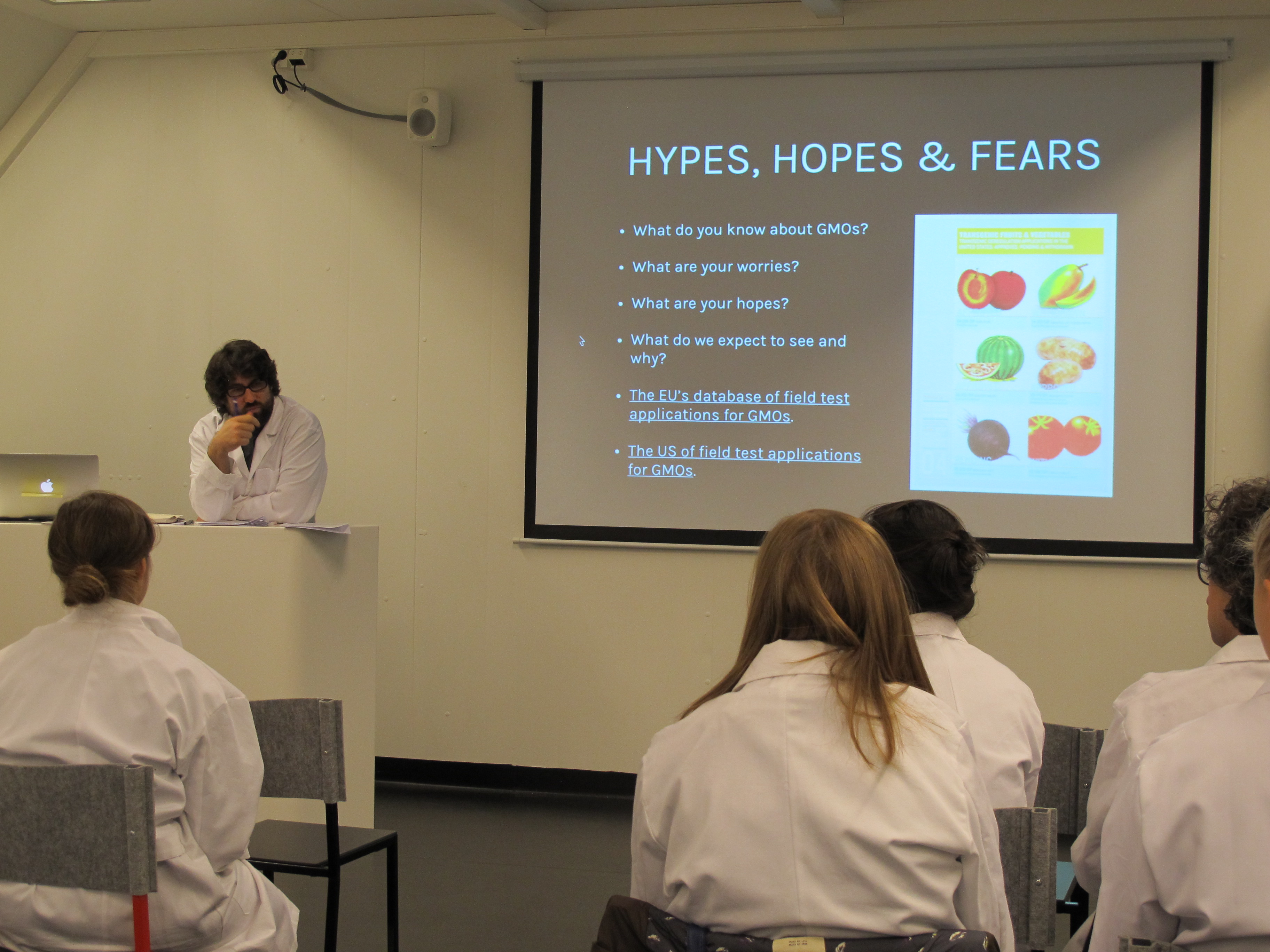
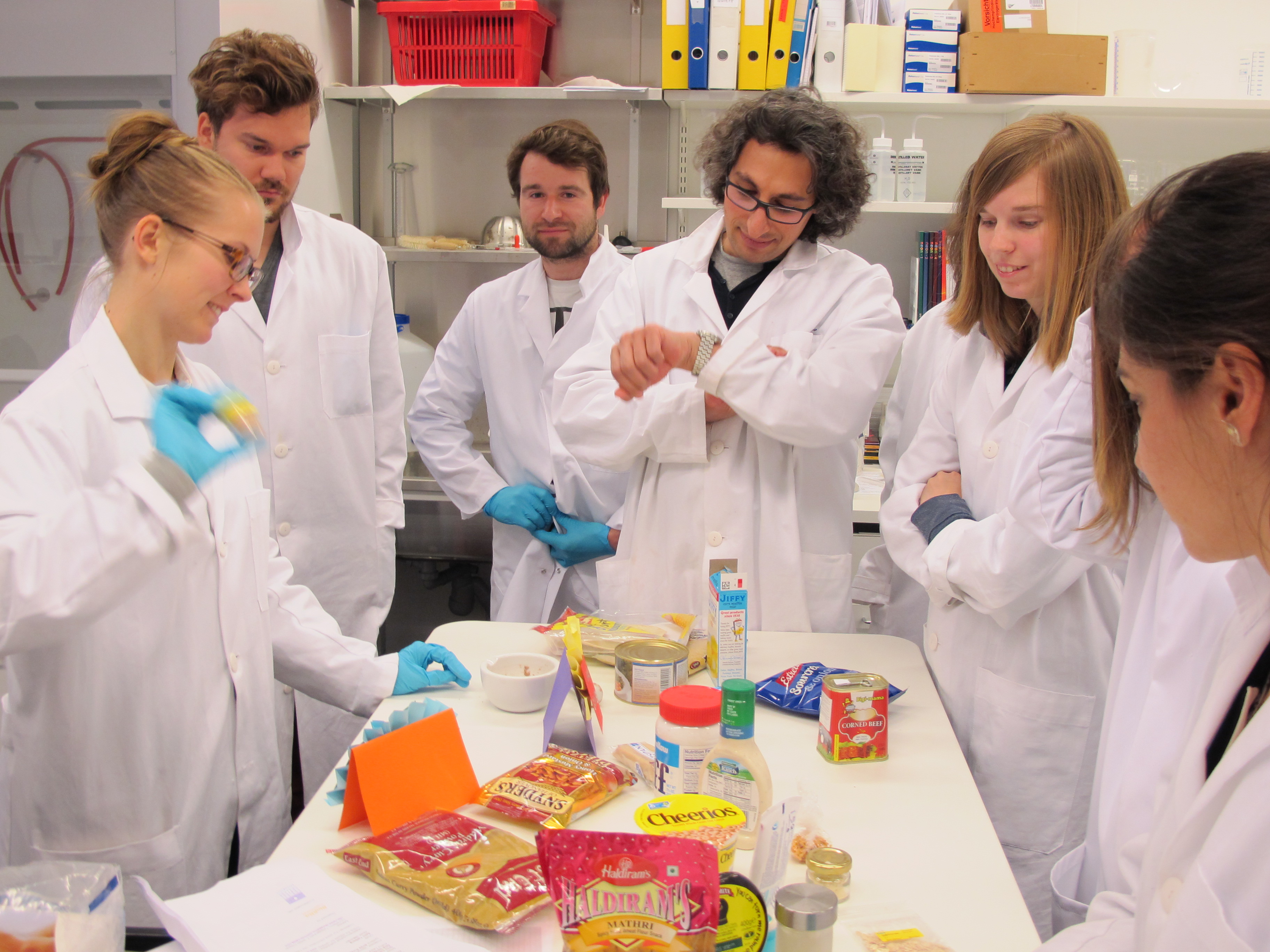
STUDENT REFLECTION
* * * * * * * * * * * *
“As a student of bioinformation technology, I was somewhat familiar with lab work already before the workshop. This, however, certainly did not lead to boredom, thanks to the relaxed atmosphere, learning by doing, passionate discussions, new methods and equipment, and altogether the versatile approaches to studying food.
I was actually quite inspired by the somewhat simple idea of the three approaches to studying food: labeling, scientific and tasting. Through labeling, the social and economic aspects somehow visualize. I like the idea of accessible science – that not all science is rocket science – because these things are way too important to be left only for scientists. And last but not least: tasting different honeys before investigating them with chemistry and a microscope made it all so much more fascinating.”
* * * * * * * * * * * * *
“The scientific and biological point of view of things as explained through participation in real life experiments was indeed really fruitful in the learning process. To be honest, being a chemical engineer I didn’t come across so many useful experimental techniques under one roof and that too put in such a delicate use. In fact I learnt PCR in real life which I never did before and which was completely out of my imagination of course when I signed and I am very happy about. I truly believe that skipping my other lectures and labs for this Biofilia course was indeed rewarding to me.
Also the slides and the topic discussion was very interesting, I was not asleep the whole time and actually learnt quite a deal from it and started to ask many questions like Taste matter?? Why??? What do GMO actually taste like ? no one knows, but I never thought like this before. What if GMO is actually threat and what if it’s the quick solution to natural disaster hit areas. For me the idea of super food is really amazing and having a lateral thinking in this field is of great use. The part of using microscopes in evaluating if the honey was made of pollens or multiple pollens was pretty amazing and the shapes and pictures of real pollens under microscope looked really beautiful.”
* * * * * * * * * * * * *
“By tasting the honey first we were able to have a really multi-sensual experience of this magical liquid. It is quite often the case that there many types of honey on the supermarket shelves, but we consumers have no real understanding about where or how it has come to be there. The exchange we have with the ‘free labour’ bees is minimal. We have no idea about their welfare, the pollen content or true extent to which the hive has had to be substituted with sugar syrups for us to enjoy their treasure. Honey is fantastic and more than ever I want to embark on a mission to try and understand the world of the honey bee.”
* * * * * * * * * * * * *
“When I entered the Biofilia lab for the first time, I admit that I secretly expected that everything would be just as easy and smooth as the acacia honey we tasted – I kind of wanted to see the lab, its tools and all the tests as perfectly designed mechanisms that would give us just the right answers. This being said, it is also probably the main reason why I think that getting no results from the GMO tests was one of the most interesting and important things for me: realizing the uncertainty of all that phasing and accuracy of measuring was maybe even more valuable than just getting straightforward answers from that blue, slightly surreal piece of gel.
Failure after such a complex and intricate process is not really unexpected in science, but there is something surprising in the way how the things we choose to do (and not do) and tools we choose to use (and not use) affect everything, not just the final result or product – in all that scientific accuracy it is still about our choices, preferences and natural curiosity.”
* * * * * * * * * * * * *
Thanks to Ulla Taipale, Marika Hellman and Oron Catts for helping it all come together.
